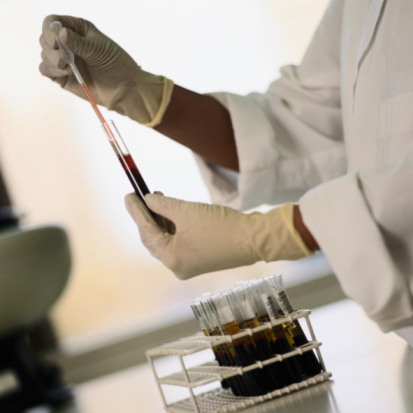A $250,000 Federal grant will go to Cleveland Clinic to develop blood tests that could offer early detection of traumatic brain injuries on the football field and off. Aimed at detecting a specific protein released into the bloodstream following a brain injury, the test could provide a definitive test to clearly identify head injuries.
Head Injuries Widespread

Almost 4 million Americans suffer from concussions every year. Symptoms include headaches, nausea, sensitivity to light, moodiness and depression. If not properly treated, TBI could lead to other problems such as ongoing depression, Parkinson’s disease and early dementia. Those with concussions who suffer a subsequent head injury before the first has healed are in the greatest danger of suffering long-term problems because of the injuries. For this reason, it is important to identify concussions early, intervene with treatment and avoid reinjury.
The most vulnerable populations include teenagers, especially boys, involved in athletics. If coaches could administer a simple, accurate test, injured players could be pulled from the field to receive proper treatment for their injuries. The result would be fewer repeat concussions and better treatment outcomes for those who suffer head injuries.
The Cleveland test seeks to identify biomarker S100B. When levels of this protein are above normal, it can be a telltale sign of brain injury. The test would likely involve taking player blood samples prior to a game or at the beginning of the season. If an impact suggests the potential for head injury, another sample could be taken to compare levels of S100B in the blood.
Subjective Tests Inconclusive
Current testing for traumatic brain injury consists largely of subjective cognitive and behavioral tests. Expensive scans like CT and MRI may be ordered, but such tests do not always reveal the extent of injuries. The blood test is different because it would show definitive proof of traumatic brain injury. It would also be significantly cheaper than a session with a neurologist or advanced scanning procedure. For just $20, a blood test would do a better job at protecting players by diagnosing traumatic brain injury.
The Cleveland Clinic study’s lead researcher, Damir Janigro, is optimistic. “As these injuries continue to occur in our athletes, we need to discover solutions for faster, more-efficient diagnosis, which is what we expect this blood test to do,” he explained.
The blood test is one of many projects the Cleveland Clinic is running to solve the problem of sports-related concussions. One project is using an iPad 2 application to test a player’s balance after an injury, since balance problems are often a sign of brain injury. The clinic is also creating an “Intelligent Mouthguard” to measure the force and frequency of blows to the head. These, along with the blood test, will go far in protecting players on the field.
Contact Us
If you or someone you know has been hurt, or if you lost a loved one to traumatic brain injuries, contact our law office today for a free consultation. We will meet with you, explain your rights and help you decide if a lawsuit is the right option for your case.


